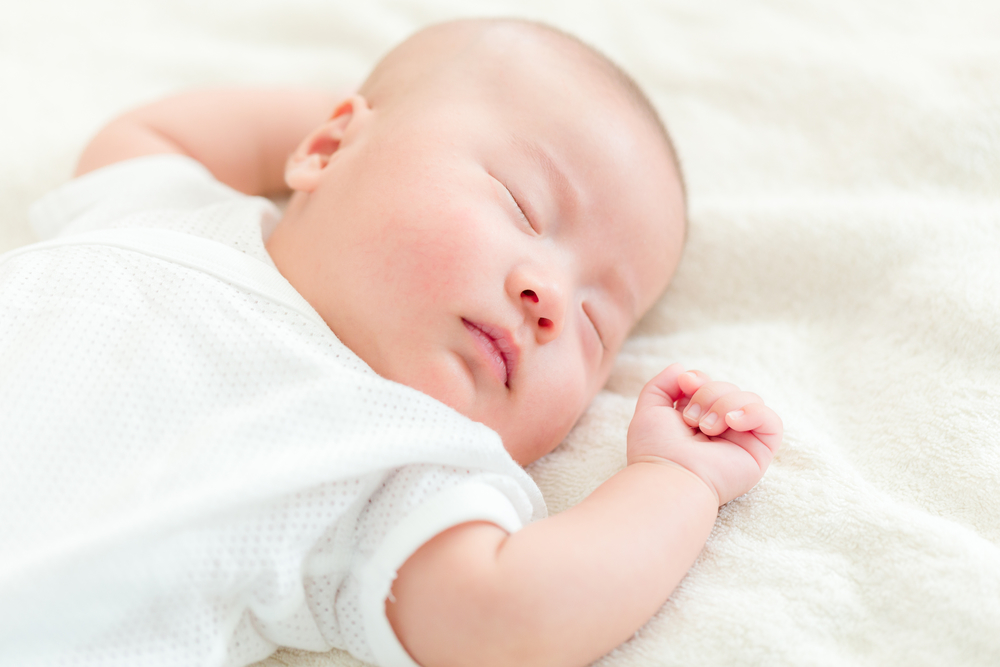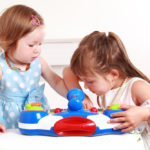
Your baby’s first three months of life is a phase where exciting development takes place. While the first month after your baby’s arrival may seem like an endless cycle of feeding, diaper changes and soothing that happened in a blur, soon enough he or she will be making progress in terms of developmental milestones.
Most babies reach certain milestones at around the recommended guidelines, but do allow room for your baby to grow and develop at his or her own pace.
Here are some things that you can expect your baby to do during the first three months.
Motor skills
As a newborn, your baby’s head will be wobbly at first and his or her movements will be jerky. But soon enough, your baby will be able to lift his or head and chest while lying on his or her stomach – which indicates a good head control. With some practice, he or she would be able to stretch and kick his or her legs in that position.
Offer your baby a toy and watch as he or she grasps and hold on to the toy tightly for a while.
Hearing
Your baby will be sensitive to noise levels. You can expect him or her to respond to the sound of your voice by smiling and gurgling back at you. He or she will also begin turning toward the direction of sounds that are heard.
Vision
During feedings, your baby’s gaze will be focused on your face, particularly your eyes. At one month old, your baby will prefer looking at bold patterns in sharply contrasting colours or black and white.
By the second month, your baby’s eyes will become more coordinated and he or she will start to track objects that are within his or her line of vision. Get ready – because soon enough, your baby will begin to recognise familiar objects and people at a distance.
Communication
By two months old, your baby might start coo-ing and repeat vowel sounds (e.g. aah, ooh) when you talk or play with him or her.
What you can do to help your baby’s development from 0 to 3 months
The bond and relationship that you form with your child paves the way to a healthy development during the first year.
Here are some things you can do to encourage your baby’s growth and development at this stage:
Hold and touch
Holding your baby close can help him or her feel safe, secure and loved. Let your baby grasp your finger and touch your face while you hold him or her in your arms.
Have small talks
Start off with simple conversations with your baby, as this forms the basis for his or her language development. Ask questions and respond to your baby’s coos and gurgles. Describe what you see, hear and smell around the house and while you’re out and about. Do keep in mind that your tone of voice lets your baby have a better sense of ideas and emotions as well.
Once you feel comfortable with having small talks with your baby, you can take things further by singing or reading a story aloud to him or her too.
Explore positions
Apart from holding your baby lying down or facing your back, try holding him or her facing outward for a different view.
With your supervision, place your baby on his or her tummy during playtime. Hold a colourful toy or make an interesting noise to encourage your baby to lift up his or her head. Most newborns will get fussy or frustrated during tummy time, so keep these sessions to just a few minutes at a time. Be sure to time it before feeding them to avoid spit up.
Respond quickly to baby’s cries
During the newborn stage, crying spells peak at about six weeks after birth and gradually settle down shortly after.
Be sure to respond to your baby’s cries quickly – be it a sign for diaper change, feeding or the need to be held. Your care and attention will help you build a strong bond with your baby, and research has shown that a parent’s presence helps to calm babies who are upset and in time, they will learn to settle down without your help one day.
When should you be worried?
It is normal for your baby to reach some developmental milestones on schedule or ahead of time, but lag behind on others.
However, it is good to be aware of the warning signs of developmental delay and see your baby’s doctor if you notice any of these symptoms by the age of 3 months:
- Shows no improvement in head control
- Doesn’t seem to respond to loud sounds
- Doesn’t smile at people or the sound of your voice
- Doesn’t follow moving objects with her or her eyes
- Doesn’t grasp and hold objects
While keeping in mind that every baby is unique, be sure to listen to your instincts too. It is best to detect a problem earlier so that it can be checked and treated by a health professional.























